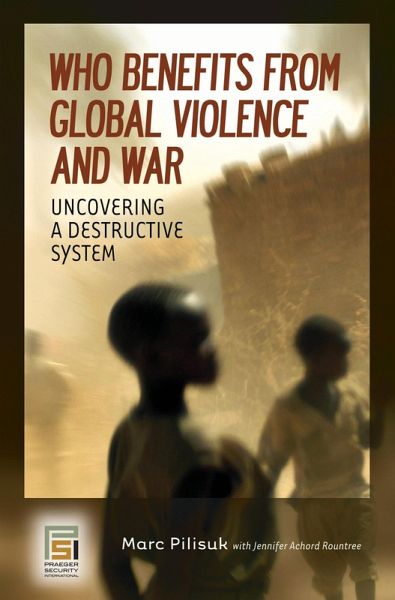
Who Benefits from Global Violence and War (eBook, PDF)
Uncovering a Destructive System

PAYBACK Punkte
20 °P sammeln!
Military, economic, and environmental violence in the era of globalization cause immense suffering and may ultimately threaten the existence of life as we know it, but author Pilisuk explains that the future can change if we understand and act upon the roots of violence. A professor emeritus of psychology and human and community development, Pilisuk explains how most violence is the product of a human-built social order in which some people and institutions control most of the resources, make the decisions that necessitate violence, and operate with minimal accountability. The common root of w...
Military, economic, and environmental violence in the era of globalization cause immense suffering and may ultimately threaten the existence of life as we know it, but author Pilisuk explains that the future can change if we understand and act upon the roots of violence. A professor emeritus of psychology and human and community development, Pilisuk explains how most violence is the product of a human-built social order in which some people and institutions control most of the resources, make the decisions that necessitate violence, and operate with minimal accountability. The common root of war, poverty, environmental destruction, and other forms of violence is spotlighted. Such violence, says Pilisuk, is a natural consequence of a system inordinately influenced by a relatively small, interconnected group of corporate, military, and government leaders with the power to instill fear, to increase their excessive fortunes, and to restrict information, particularly about their own clandestine dealings. This text includes scholarship hailing from across disciplines, combined with information from investigative journalism, and insights from nonprofit watchdog groups, all shedding light on centralized power and its effects. Pilisuk presents material including the range of tactics used to manipulate and destroy adversaries, the human capacity to kill as a challenge, and how media is used by powerful groups to manipulate fear and maintain their power. Here, readers find solid social science to support what whistleblowers and social critics are observing about a system that needs change.













